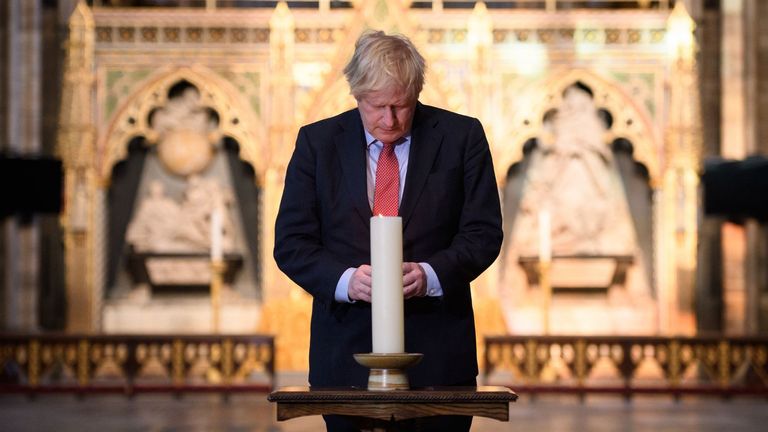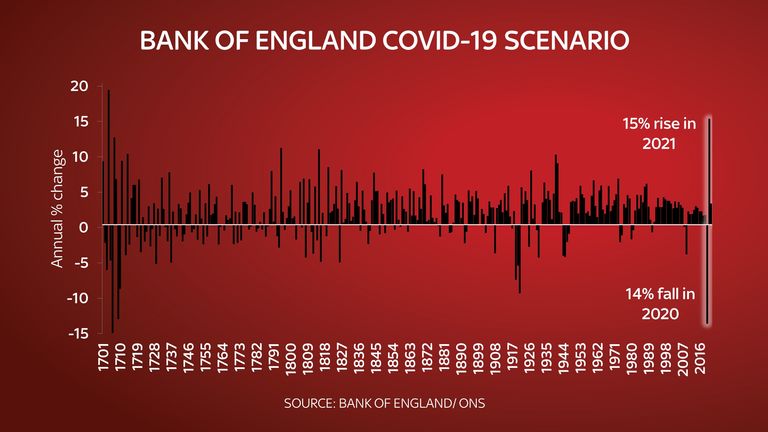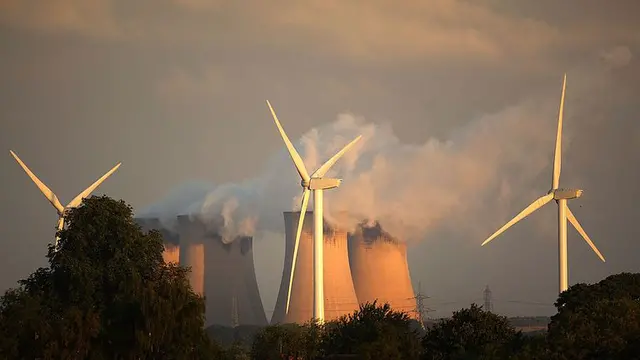For the first time since 1882, Great Britain has gone more than 28 days without using coal, and the lockdown is contributing to keeping power consumption low.
The use of coal power in the UK has been falling for years but the
COVID-19
lockdown as well as the warm weather in April have contributed to this long run by reducing power consumption.
The bank holiday weekend, beginning with
commemorations of VE Day
on Friday, is expected to lead to a further drop.

How lockdown has given us more time for life's simple pleasures
The record previously stood at 18 days and was set last year, but this run is expected to stretch even further as Sky New understands there is no expectation coal will be brought onto the system this weekend.
According to the government's current plans, none of the National Grid's electricity will be supplied by coal power by 2025, although the last coal plant in the UK could close as early as 2022.
Since 2015 the UK has reduced its coal use by 92% while almost doubling the amount of electricity generated by wind power, and now the UK's last coal generator has been offline since midnight on 9 April.
This February also set a record for the greenest month of record for UK electricity generation, with the lowest ever measure of carbon emissions for kilowatt hour of electricity consumed.
Fintan Slye, director of National Grid ESO - the utility company's independent electricity system operator - said 2020 was "shaping up to be a record-breaking year for Great Britain's electricity system".
"Within a matter of days we've seen a new solar generation record, and the longest period of coal-free operation in Britain," Mr Slye added.
"And that follows two of the greenest months on record at the start of the year, underlining the progress that's being made towards our target of being able to operate the electricity system entirely with zero carbon sources by 2025."

UK marks 75th anniversary of WWII victory in Europe
The minister for Energy and Clean Growth, Kwasi Kwarteng, told Sky News: "This record-breaking stretch shows that Britain now barely depends at all on coal to meet our energy needs, which is testament to our world-leading low-carbon energy industry.
"As we move to end our contribution to climate change entirely by 2050, it's great to see green energy continuing to go from strength to strength, even during this difficult time."
Around the world the
coronavirus
lockdowns have resulted in unexpected environmental benefits, causing carbon emissions to fall and air quality to rise.
The low demand for power caused concern for the National Grid as an over-supply may lead to blackouts, although energy regulator Ofgem clarified that it had the power to switch off regional generators to prevent issues on the grid.
But the economic impact on industry has been substantial and could get worse.

Image:GDP could drop 14% this year before rebounding 15% in 2021. Source: BoE/ONS
According to a prediction based on a Bank of England scenario, the
UK's GDP will fall 14% this year
- its worst annual slump for more than three centuries - and the jobless rate will hit 8%.
But the scenario also sees a rapid recovery from the slump when the cogs of the economy pick up pace, with GDP surging by 15% in 2021.
 简体中文
简体中文





